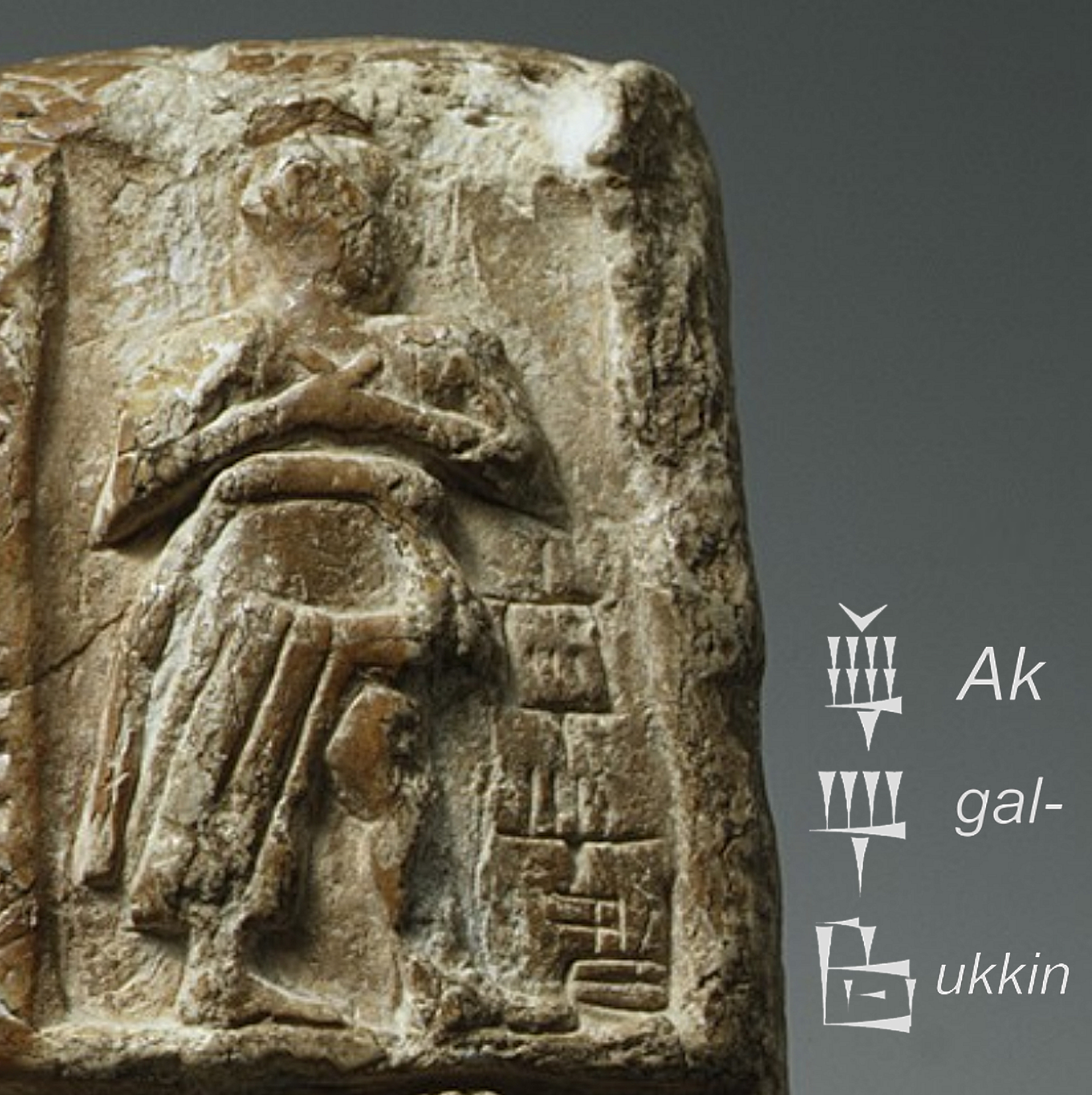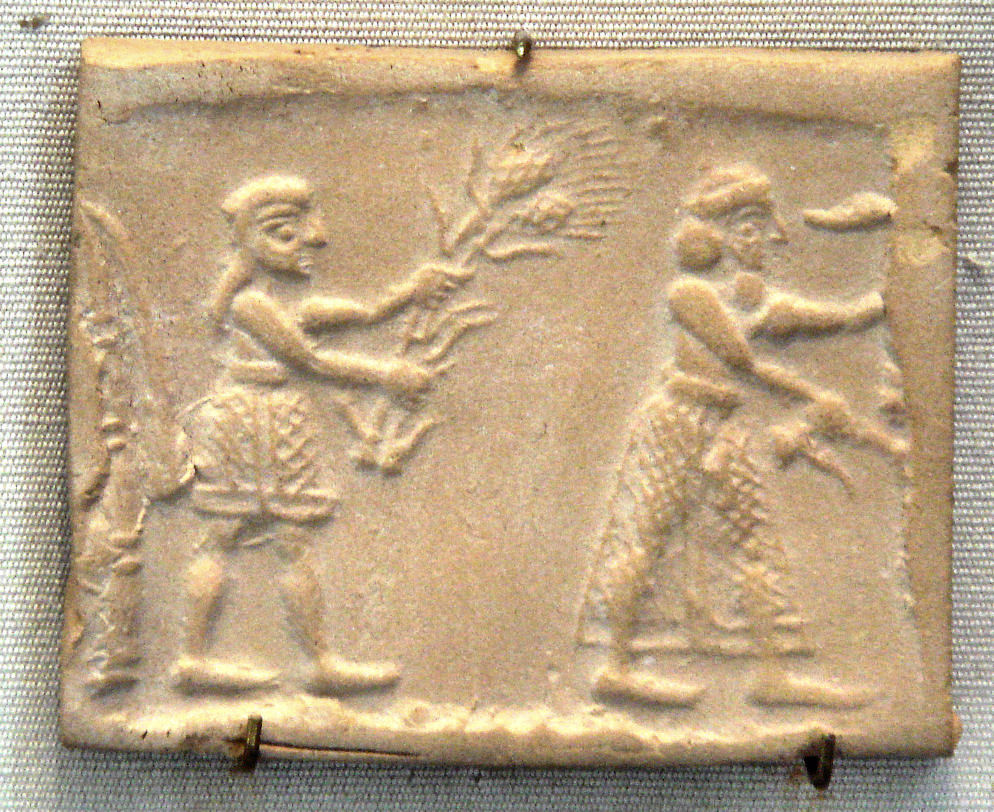|
En-nun-tarah-ana
En-nun-tarah-ana (died 2588 BC) was the ninth Sumerian ruler in the First Dynasty of Uruk. According to the ''Sumerian King List'', he reigned for 8 years. See also *Uruk Uruk, the archeological site known today as Warka, was an ancient city in the Near East, located east of the current bed of the Euphrates River, on an ancient, now-dried channel of the river in Muthanna Governorate, Iraq. The site lies 93 kilo ... References , - 26th-century BC Sumerian kings Kings of Uruk {{AncientNearEast-bio-stub 3rd-millennium BC births 3rd-millennium BC deaths ... [...More Info...] [...Related Items...] OR: [Wikipedia] [Google] [Baidu] |
Mesh-he
Mesh-He (died 2552 BC), described as "the smith", is the 10th lugal of the first dynasty of Uruk. He ruled in modern-day Iraq. Little is known about Mesh-he. The ''Sumerian King List The ''Sumerian King List'' (abbreviated ''SKL'') or ''Chronicle of the One Monarchy'' is an ancient Composition (language), literary composition written in Sumerian language, Sumerian that was likely created and redacted to legitimize the claims ...'' puts him after En-Nun-Tarah-Ana and assigns 36 years of reign, it is believed he died by the year 2552 BC. He was followed by Melem-ana. His historicity, and that of his successors, however, is not completely established. References See also , - 26th-century BC Sumerian kings Kings of Uruk 3rd-millennium BC births 26th-century BC deaths {{AncientNearEast-bio-stub ... [...More Info...] [...Related Items...] OR: [Wikipedia] [Google] [Baidu] |
Sumerian King List
The ''Sumerian King List'' (abbreviated ''SKL'') or ''Chronicle of the One Monarchy'' is an ancient Composition (language), literary composition written in Sumerian language, Sumerian that was likely created and redacted to legitimize the claims to power of various city-states and kingdoms in southern Mesopotamia during the late third and early second millennium BC. It does so by repetitively listing Sumerian cities, the kings that ruled there, and the lengths of their reigns. Especially in the early part of the list, these reigns often span thousands of years. In the oldest known version, dated to the Third Dynasty of Ur, Ur III period () but probably based on Akkadian Empire, Akkadian source material, the ''SKL'' reflected a more linear transition of power from Kish (Sumer), Kish, the first city to receive kingship, to Akkad (city), Akkad. In later versions from the Old Babylonian Empire, Old Babylonian period, the list consisted of a large number of cities between which kingshi ... [...More Info...] [...Related Items...] OR: [Wikipedia] [Google] [Baidu] |
Uruk
Uruk, the archeological site known today as Warka, was an ancient city in the Near East, located east of the current bed of the Euphrates River, on an ancient, now-dried channel of the river in Muthanna Governorate, Iraq. The site lies 93 kilometers (58 miles) northwest of ancient Ur, 108 kilometers (67 miles) southeast of ancient Nippur, and 24 kilometers (15 miles) northwest of ancient Larsa. It is east of modern Samawah. Uruk is the type site for the Uruk period. Uruk played a leading role in the early urbanization of Sumer in the mid-4th millennium BC. By the final phase of the Uruk period around 3100 BC, the city may have had 40,000 residents, with 80,000–90,000 people living in its environs, making it the largest urban area in the world at the time. Gilgamesh, according to the chronology presented in the '' Sumerian King List'' (''SKL''), ruled Uruk in the 27th century BC. After the end of the Early Dynastic period, with the rise of the Akkadian Empire, the ci ... [...More Info...] [...Related Items...] OR: [Wikipedia] [Google] [Baidu] |
La-ba'shum
La-ba'shum (died 2596 BC) was the eighth Sumerian ruler in the First Dynasty of Uruk, according to the ''Sumerian King List The ''Sumerian King List'' (abbreviated ''SKL'') or ''Chronicle of the One Monarchy'' is an ancient Composition (language), literary composition written in Sumerian language, Sumerian that was likely created and redacted to legitimize the claims ...''. He was described as ruling for nine years. , - References 27th-century BC Sumerian kings 26th-century BC Sumerian kings Kings of Uruk {{AncientNearEast-bio-stub 3rd-millennium BC births 3rd-millennium BC deaths ... [...More Info...] [...Related Items...] OR: [Wikipedia] [Google] [Baidu] |
King Of Sumer
The ''Sumerian King List'' (abbreviated ''SKL'') or ''Chronicle of the One Monarchy'' is an ancient Composition (language), literary composition written in Sumerian language, Sumerian that was likely created and redacted to legitimize the claims to power of various city-states and kingdoms in southern Mesopotamia during the late third and early second millennium BC. It does so by repetitively listing Sumerian cities, the kings that ruled there, and the lengths of their reigns. Especially in the early part of the list, these reigns often span thousands of years. In the oldest known version, dated to the Third Dynasty of Ur, Ur III period () but probably based on Akkadian Empire, Akkadian source material, the ''SKL'' reflected a more linear transition of power from Kish (Sumer), Kish, the first city to receive kingship, to Akkad (city), Akkad. In later versions from the Old Babylonian Empire, Old Babylonian period, the list consisted of a large number of cities between which kingshi ... [...More Info...] [...Related Items...] OR: [Wikipedia] [Google] [Baidu] |
List Of Kings Of Uruk
A list is a set of discrete items of information collected and set forth in some format for utility, entertainment, or other purposes. A list may be memorialized in any number of ways, including existing only in the mind of the list-maker, but lists are frequently written down on paper, or maintained electronically. Lists are "most frequently a tool", and "one does not ''read'' but only ''uses'' a list: one looks up the relevant information in it, but usually does not need to deal with it as a whole".Lucie Doležalová,The Potential and Limitations of Studying Lists, in Lucie Doležalová, ed., ''The Charm of a List: From the Sumerians to Computerised Data Processing'' (2009). Purpose It has been observed that, with a few exceptions, "the scholarship on lists remains fragmented". David Wallechinsky, a co-author of ''The Book of Lists'', described the attraction of lists as being "because we live in an era of overstimulation, especially in terms of information, and lists help us ... [...More Info...] [...Related Items...] OR: [Wikipedia] [Google] [Baidu] |
Sumer
Sumer () is the earliest known civilization, located in the historical region of southern Mesopotamia (now south-central Iraq), emerging during the Chalcolithic and Early Bronze Age, early Bronze Ages between the sixth and fifth millennium BC. Like nearby Elam, it is one of the Cradle of civilization, cradles of civilization, along with ancient Egypt, Egypt, the Indus Valley Civilisation, Indus Valley, the Erligang culture of the Yellow River valley, Caral-Supe civilization, Caral-Supe, and Mesoamerica. Living along the valleys of the Tigris and Euphrates rivers, Sumerian farmers grew an abundance of grain and other crops, a surplus of which enabled them to form urban settlements. The world's earliest known texts come from the Sumerian cities of Uruk and Jemdet Nasr, and date to between , following a period of proto-writing . Name The term "Sumer" () comes from the Akkadian Empire, Akkadian name for the "Sumerians", the ancient non-Semitic languages, Semitic-speaking inhabitan ... [...More Info...] [...Related Items...] OR: [Wikipedia] [Google] [Baidu] |
Ensí
Ensi (cuneiform: , "lord of the plowland"; Emesal dialect: ''umunsik''; ) was a Sumerian title designating the ruler or prince of a city-state. Originally it may have designated an independent ruler, but in later periods the title presupposed subordinance to a lugal. For the Early Dynastic Period (about 2800–2350 BC), the meaning of the titles en, ensi and lugal cannot be differentiated clearly: see lugal, ensi and en for details. Ensi may have originally been a designation of the ruler restricted to Lagash and Umma. The ''ensi'' was considered a representative of the city-state's patron deity. In later periods, an ensi was normally seen as subordinate to a lugal. Nevertheless, even the powerful rulers of the Second Dynasty of Lagash () such as Gudea were satisfied with the title ensi. During the Third Dynasty of Ur (about 2100–2000 BC) ensi referred to the provincial governors of the kingdom. These exercised great powers in terms of government, tax revenue and juris ... [...More Info...] [...Related Items...] OR: [Wikipedia] [Google] [Baidu] |
Interlanguage Links
An interlanguage is an idiolect developed by a learner of a second language (L2) which preserves some features of their first language (L1) and can overgeneralize some L2 writing and speaking rules. These two characteristics give an interlanguage its unique linguistic organization. It is idiosyncratically based on the learner's experiences with L2. An interlanguage can fossilize, or cease developing, in any of its developmental stages. Several factors can shape interlanguage rules, including L1 transfer, previous learning strategies, strategies of L2 acquisition, L2 communication strategies, and the overgeneralization of L2 language patterns. Interlanguage theory posits that a dormant psychological framework in the human brain is activated with study of a second language. The theory is credited to Larry Selinker, who coined the terms ''interlanguage'' and ''fossilization''. Uriel Weinreich is credited with providing the basis for Selinker's research. Selinker noted in 1972 t ... [...More Info...] [...Related Items...] OR: [Wikipedia] [Google] [Baidu] |
26th-century BC Sumerian Kings
The 6th century is the period from 501 through 600 in line with the Julian calendar. In the West, the century marks the end of Classical Antiquity and the beginning of the Middle Ages. The collapse of the Western Roman Empire late in the previous century left Europe fractured into many small Germanic kingdoms competing fiercely for land and wealth. From the upheaval the Franks rose to prominence and carved out a sizeable domain covering much of modern France and Germany. Meanwhile, the surviving Eastern Roman Empire began to expand under Emperor Justinian, who recaptured North Africa from the Vandals and attempted fully to recover Italy as well, in the hope of reinstating Roman control over the lands once ruled by the Western Roman Empire. Owing in part to the collapse of the Roman Empire along with its literature and civilization, the sixth century is generally considered to be the least known about in the Dark Ages. In its second golden age, the Sassanid Empire reached the ... [...More Info...] [...Related Items...] OR: [Wikipedia] [Google] [Baidu] |
Kings Of Uruk
Kings or King's may refer to: *Kings: The sovereign heads of states and/or nations. *One of several works known as the "Book of Kings": **The Books of Kings part of the Bible, divided into two parts **The ''Shahnameh'', an 11th-century epic Persian poem **The Morgan Bible, a French medieval picture Bible **The Pararaton, a 16th-century Javanese history of southeast Asia *The plural of any king Business * Kings Family Restaurants, a chain of restaurants in Pennsylvania and Ohio * Kings Food Markets, a chain supermarket in northern New Jersey * King's Favourites, a brand of cigarettes *King's Variety Store, a chain of stores in the USA *King's (defunct discount store), a defunct chain of discount stores in the USA Education *King's College (other), various colleges * King's School (other), various schools * The King's Academy (other), various academies Electoral districts *King's (New Brunswick federal electoral district) (1867–1903) * Kings (Nova S ... [...More Info...] [...Related Items...] OR: [Wikipedia] [Google] [Baidu] |





